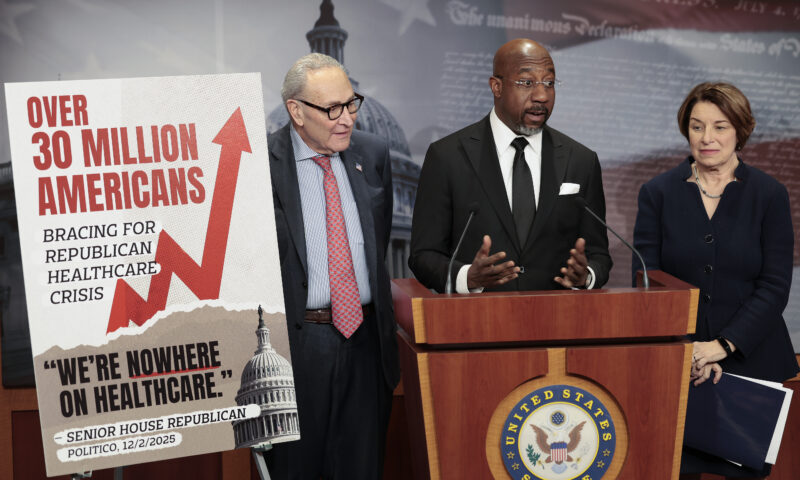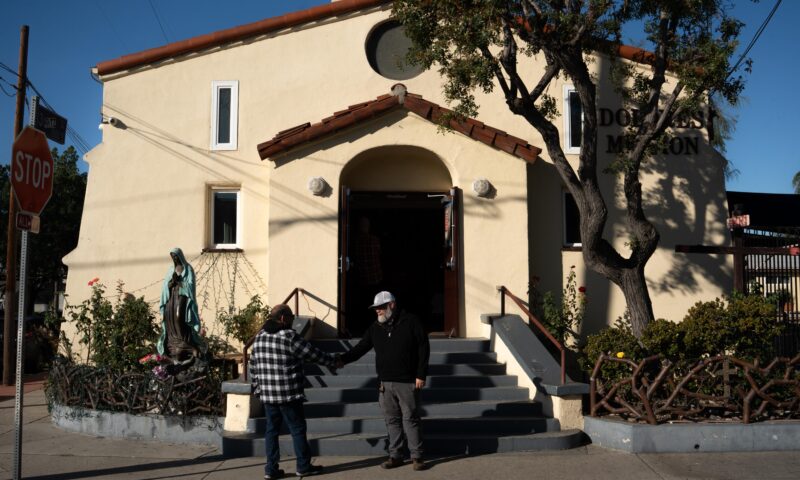Dana and her family have had the conversation many times now. Her parents want her to come home when her spring university term in Southern California ends — to leave the United States, even at the risk of not being allowed to return from her Middle East country when school resumes in the fall.
“They’d rather I get denied [trying to return to California] and get put on a plane and sent back home, than for someone to pick me up in the middle of the street in the U.S. one day and I just kind of disappear for a couple of days,” Dana told me this week.
Dana herself is torn. The best option for her chosen profession of journalism is to remain in California through the summer on her student visa, work at an internship and continue gaining experience and making the connections that could set her up for a successful career — which, too, could unfold fully in this country, she says.
Canada and the United Kingdom stand to benefit from a U.S. student brain drain.
But the complication is obvious. In light of the Trump administration’s whipsawing policies on international student visas and detention of foreign students on shaky legal grounds, there’s no way to know whether the 21-year-old would get through the summer without an immigration issue — or, potentially, being either detained or ordered to leave.
Though she said she is not fearful, Dana requested that her real name and identifying details not be used for this story. When I asked whether she feels safe as a foreign student in the U.S., she replied, “I don’t think so, no.”
“My family says, ‘This is not worth any of it,’” Dana said. “They want me to get on a plane and come home.”
* * *
In addition to the immediate chaos on the ground for international students in the U.S., a longer-term story is unfolding. That story will be devastating for colleges and universities, as many of the world’s highest performing students — and their families — decide that this country is no longer the place for them to be.
“We’re going to see a reduction in the number of international students and scholars coming to the U.S.,” said Kevin Johnson, an immigration expert and former 16-year dean of the law school at the University of California, Davis. “These students have options all over the world. They’ll choose places where they don’t face the kinds of risks that this administration has made clear will be posed to them if they come here.”
Johnson mentioned Canada and the United Kingdom as potential beneficiaries of the U.S. student brain drain, just as he says they were during the first Trump administration, when the president’s anti-immigrant policies drove foreign students elsewhere.
International students contributed more than $50 billion to the U.S. economy in 2023.
Will the impact be long lasting?
“Generations,” Johnson said. “But the short-term impact is declining numbers of international students, declining international tuition and more tightening of budgets at universities.”
Those dynamics lead to a “constriction of the pipeline,” as Johnson put it. Fewer international students means fewer people later choosing to remain in the U.S. as professionals — in tech, science, health care, finance — and add to the economy here.
International students contributed more than $50 billion to the U.S. economy in 2023, according to Department of Commerce research cited by the Institute of International Education. Research at UC Davis, meanwhile, has found that international graduate students create a far higher proportion of business startups in this country than do U.S.-born grad students.
In short, the Trump administration’s ham-handed attempts to drive foreign students out of the country amount to a lose-lose-lose. California universities will fail to attract top international students and scholars. Their budgets, which are boosted significantly by “nonresident” tuition payments, will suffer from the steep drop in foreign student tuition. And those students will go on not only to get their education but make their careers elsewhere, depriving the U.S. of their productivity and economic contributions.
“Our workforce needs workers with graduate degrees,” said Suzanne Ortega, president of the Washington, D.C.-based Council of Graduate Schools. “We should be doing more to support international students who want to get graduate degrees, not enact policies that will make it impossible.”
* * *
Before Trump’s administration recently rolled back its terminations of foreign student visas in the face of multiple court challenges, California universities had seen scores of international visas revoked. A spokesperson at UC Berkeley put that campus’s count last week at 23; at UCLA, it was nine current and 10 former students, with the former students participating in the Optional Practical Training program. That program allows international students with F-1 visas to work in the U.S. for up to 12 months during or after their studies.
Those numbers, though, will pale in comparison with the total of international students who are likely to rethink their plans to study here at all because of Trump’s policies, Johnson said. The highly publicized — and, in one case, since overturned — arrests of students who are in the U.S. legally has sent a chill through the academic community.
“I guess people are becoming more comfortable about being just openly discriminatory or insulting.”
~ Dana, foreign student
“We have had two high profile cases of students who were lawful permanent residents of the U.S. who nevertheless were placed in immigrant detention,” Johnson said. “The so-called shock and awe of these measures are making it pretty clear to people around the world that this country currently is not particularly sympathetic to foreigners, or willing to fully accept them.”
Dana, who is still deciding what she’ll do this summer, has experienced that sensation firsthand. During our conversation, she noted that she’s begun hearing odd and sometimes out-of-nowhere comments — from a bouncer at a club, from a security detail at an event — disparaging her status as an international student.
“I guess people are becoming more comfortable about being just openly discriminatory or insulting sometimes,” she said. “I love my school. It’s a great place for me to study. But I’ve come to this weird mindset of thinking, ‘Well, I just won’t stay here, then.’”
It is also clear, she told me, that whatever is happening at this exact moment is most likely subject to change. Dana and other international students with whom she’s spoken believe Trump’s administration backed off only because it had clumsily overstepped its bounds, not because it changed its mind about going after foreign students.
“A lot of us are on the same page right now,” Dana said. “Why force ourselves to be somewhere where we feel this unsafe, this targeted, this vulnerable? We could just not be here.”
Copyright 2025 Capital & Main


 Locked OutDecember 16, 2025
Locked OutDecember 16, 2025
 Column - California UncoveredDecember 12, 2025
Column - California UncoveredDecember 12, 2025
 Locked OutDecember 23, 2025
Locked OutDecember 23, 2025
 The SlickDecember 19, 2025
The SlickDecember 19, 2025
 Locked OutDecember 17, 2025
Locked OutDecember 17, 2025
 Latest NewsDecember 22, 2025
Latest NewsDecember 22, 2025
 Column - State of InequalityDecember 18, 2025
Column - State of InequalityDecember 18, 2025
 Striking BackDecember 17, 2025
Striking BackDecember 17, 2025

